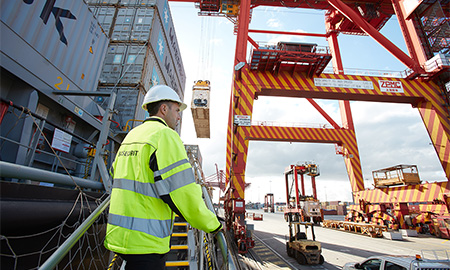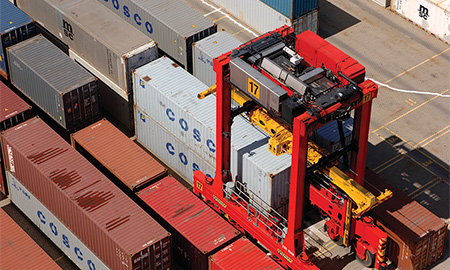We ensure that all goods, conveyances and travellers meet Australia’s biosecurity and import requirements.
We are responsible for operational policy and front-line regulation to manage biosecurity and imported food risk, and the delivery of assessment, inspection, stakeholder engagement and client contact services.
Our front-line staff inspect and assess thousands of consignments annually to prevent biosecurity threats entering our country. These threats pose significant risks to our environment, agriculture industries and way of life.
Working with all stakeholders in the importing and shipping industries enables us to deliver these activities.
Operational updates
Sharing information with our stakeholders helps us achieve our goals.
See our recent biosecurity operational updates. You can also check all import industry advice notices.
Stakeholders in the import and shipping industries are reminded of the actions taken when offshore treatment providers are suspended, including the ‘in transit policy’ and how this affects goods under the BMSB Seasonal Measures.
Stakeholders in the import and shipping industries are urged to remain vigilant when receiving and opening goods from BMSB target risk and native risk countries.
The 2024/25 BMSB season has seen a higher number of BMSB found in traps across the country.
Changes for importing new and aged/used oversize tyres came into effect on 1 February 2025.
These changes address the continued detection of biosecurity material during oversize tyre inspections.
Biosecurity officers are no longer required to perform a tarping verification for sea containers and breakbulk goods (including CAL) that have been inspected on-wharf.
Once goods have been tarped, they can move immediately to the nominated Approved Arrangement (AA) site.
Biosecurity news
See our latest biosecurity news items.
Engaging with industry on our biosecurity operations
April 2025
Monica Collins, Head of Biosecurity Operations, is committed to progressing efforts to meet regulatory obligations and adapt to the changing environment.
Updating industry on our biosecurity import clearance reforms
April 2025
Staying at the forefront of biosecurity, our leaders are committed to sharing insights and updates from key industry events.
Broker toolkit
- Biosecurity Import Conditions system (BICON)
- Imported food
- External territories
- Specific commodities
- Applying for an approved arrangement
- Broker approved arrangements (class 19)
- Requirements and conditions for Non commodity for containerised cargo (NCCC)
- Requirements and conditions for Automatic entry processing for commodities (AEPCOMM)
- Compliance classifications for class 19 approved arrangements
- Approved commodities and related information for class 19.2 approved arrangement
- Automatic Entry Processing (AEP)
- Training and accreditation
- Continued Biosecurity Competency (CBC) activities
- Variations, revocations and change of details
- Fees and charges
- Imported food
- Pre border
- Brown marmorated stink bug (BMSB) treatment providers scheme
- Australian Fumigation Accreditation Scheme (AFAS)
- Ethylene oxide (ETO) offshore treatment providers scheme
- Gamma irradiation offshore treatment providers scheme & facilities
- Offshore cleaning and pre-inspection of used vehicles
- Sea container hygiene system
- Post border
- Approved Arrangement
- Biosecurity risk treatment guide
- Offshore schemes
- Offshore treatment providers
- Onshore treatment sites
- Sea container cleaning standards
- Waste
- Request to have import documents assessed outside business hours
- Imported food inspection scheme laboratory nomination form
- Movement advice for animal transport equipment
- Notification of container and break bulk discharge
- Reportable biosecurity incident form
- Request for inspection form
- Request for permission to dispose of goods/conveyance
- Acceptable documentation templates
- Booking an inspection
- Sites operating under an approved arrangement
- Cargo Container Verification (CCV)
- Fees
- Forms
- Be biosecurity aware - See. Secure. Report.
- How to import guide
- Cargo containers: biosecurity aspects and procedures
- Biosecurity treatments and fumigants
- Treatment providers


